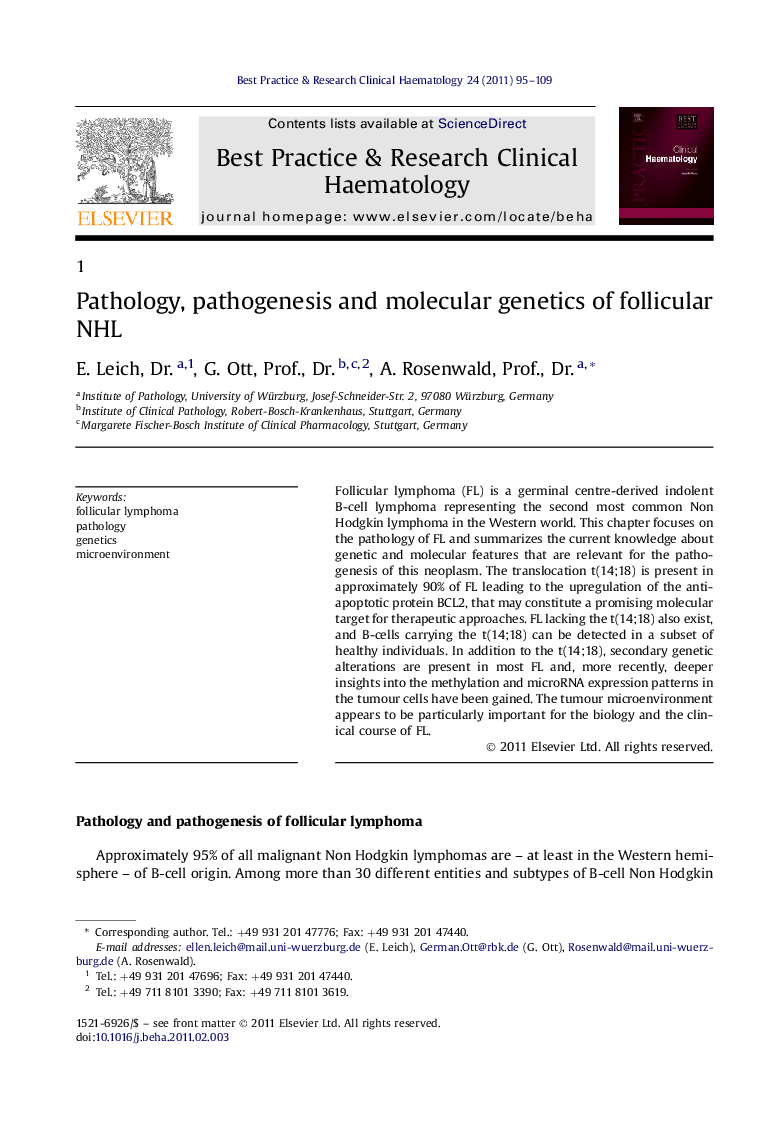| Article ID | Journal | Published Year | Pages | File Type |
|---|---|---|---|---|
| 2100242 | Best Practice & Research Clinical Haematology | 2011 | 15 Pages |
Follicular lymphoma (FL) is a germinal centre-derived indolent B-cell lymphoma representing the second most common Non Hodgkin lymphoma in the Western world. This chapter focuses on the pathology of FL and summarizes the current knowledge about genetic and molecular features that are relevant for the pathogenesis of this neoplasm. The translocation t(14;18) is present in approximately 90% of FL leading to the upregulation of the anti-apoptotic protein BCL2, that may constitute a promising molecular target for therapeutic approaches. FL lacking the t(14;18) also exist, and B-cells carrying the t(14;18) can be detected in a subset of healthy individuals. In addition to the t(14;18), secondary genetic alterations are present in most FL and, more recently, deeper insights into the methylation and microRNA expression patterns in the tumour cells have been gained. The tumour microenvironment appears to be particularly important for the biology and the clinical course of FL.
